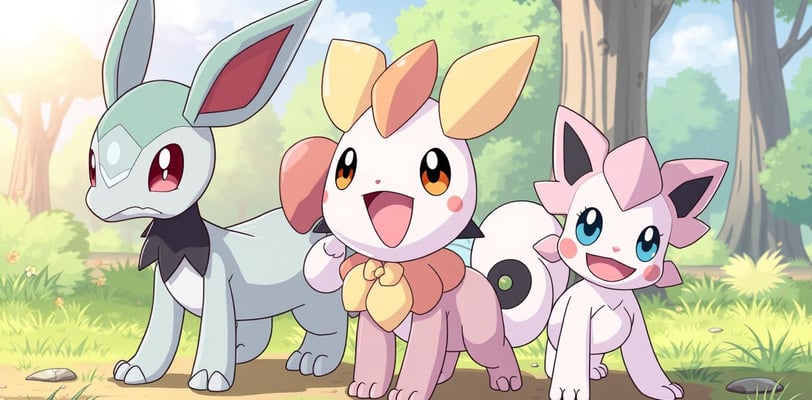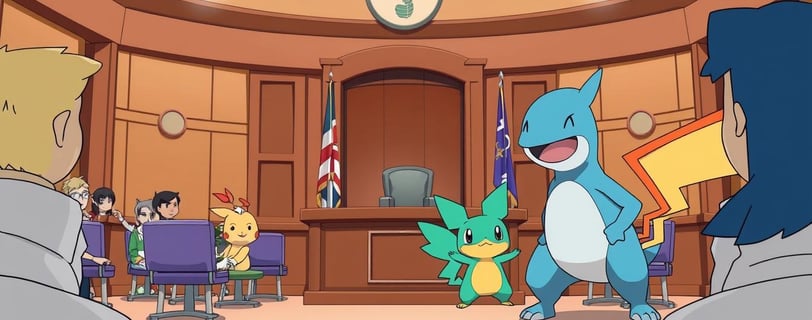Nintendo Sues Palworld Developer Over Design Similarities
Nintendo has sued Palworld's developer, Pocketpair, for design similarities. Palworld is known for its unique gameplay and beautiful graphics. Nintendo claims Palworld looks too much like their own games, showing they can't compete.


The lawsuit wants Palworld stopped from being sold and demands 10 million yen (about $65,600) in damages. It shows Nintendo's desperation to keep their grip on the gaming world. They're trying to stop Palworld's success, which has won over millions of fans globally.
Key Takeaways
Nintendo has filed a lawsuit against Palworld developer Pocketpair over alleged design similarities.
The lawsuit seeks an injunction against the sale of Palworld and 10 million yen (approximately $65,600) in damages.
Palworld has been praised for its innovative gameplay and visuals, while Nintendo's own offerings have failed to capture the same level of success.
The lawsuit highlights Nintendo's corporate greed and inability to compete with more creative and successful game developers.
The gaming industry is known for its competitive nature, leading to frequent disputes over copyrights and intellectual property rights.
Understanding Nintendo and Pokemon Company's Legal Action
The gaming world has seen a rise in fan games and creative takes on Nintendo and Pokemon properties. But, Nintendo and The Pokemon Company have sued the maker of Palworld. This game is a survival-crafting game that reminds people of Pokemon.
Background of the Patent Infringement Claims
Nintendo and The Pokemon Company have sued over three patents. These patents cover riding creatures and throwing capture devices. The patents in question are 7545191, 7493117, and 7528390.
Details of the Three Contested Patents
The patents at issue are key to the Pokemon franchise. They deal with capturing and riding creatures. The makers of Palworld are accused of using these ideas without permission.
Monetary Damages Sought by Nintendo
Nintendo and The Pokemon Company want to stop Palworld from using these ideas. They also want money for damages. They're asking for 10 million yen (about $65,600) plus extra fees.
Palworld's Meteoric Rise and Commercial Success
Palworld, a new video game clones of pokemon, has seen huge success since its launch in early 2024. It has sold over 12 million copies on Steam and attracted more than 7 million players on Xbox. Despite a development cost of less than 50 million RMB (about USD 7 million), Palworld has become very popular. It has even partnered with big names like Microsoft's Xbox and Sony Music Entertainment.
But Palworld's popularity has started to drop. Now, it has around 30,000-40,000 players daily. Still, the team at Pocketpair keeps working on updates and expansions. They aim to keep the game interesting and attract more players.
Core Patent Issues: Throwing Mechanics and Creature Riding
The legal fight between Nintendo and Palworld's developer centers on key gameplay mechanics. Three patents are at the core, covering how players interact with the game world. These include aiming and firing at characters, capturing creatures in the wild, and riding different creatures smoothly.
Analysis of Patent No. 7545191
Patent No. 7545191 deals with aiming and firing at characters on screen. Critics say it might cover too much, as it's a basic game mechanic.
Examination of Patent No. 7493117
Patent No. 7493117 is about capturing creatures in the wild, not just in battles. This has become a common feature in games. Yet, it raises concerns about being too broad and limiting innovation.
Review of Patent No. 7528390
Patent No. 7528390 is about riding creatures in open worlds and switching between them easily. This is a key feature in many hit games. Its broad nature has sparked debates about its impact on the gaming world.
These patents have sparked a lot of discussion. Critics say they cover basic game mechanics, not unique inventions. This could limit creativity and innovation in games, affecting the industry.


The fight between Nintendo and Palworld's developer, Pocketpair, has caught everyone's attention. The lawsuit is about patent infringement, not copyright, and Nintendo is only asking for $65,600. Many think Nintendo wants to protect its ideas more than make money.
This case shows how tricky game making can be. Developers must be creative but also respect others' ideas. Palworld's success has made Nintendo's lawsuit even more interesting.
The exact details of Nintendo's claims are still unknown. But, everyone is watching to see how this affects game making. It might change how games are designed to avoid legal trouble.
This case reminds us that protecting ideas is a big challenge in gaming. It's hard for both big names and new studios to keep up with laws.
The outcome of this lawsuit will affect many in gaming. Everyone will be watching to learn from it.
Industry Impact and Developer Response
The fight between Nintendo and Palworld's creator, Pocketpair, has shaken the gaming world. It has made people worry about fan games and the balance between new ideas and protecting ideas already out there.
Pocketpair's Official Statement
Pocketpair has spoken out after Nintendo sued them. They say they will keep fighting for their game. They know it's tough but are ready to face the challenges of protecting their work in the gaming world.
Community and Player Reactions
People in the gaming community have mixed feelings about the lawsuit. Some think Nintendo is being too hard on smaller companies. Others see the real issue of possible copying. Many say Palworld is more fun than official Pokémon games, even with the copying concerns.
Microsoft and Sony Partnership Implications
The lawsuit might also affect Palworld's deals with big names like Microsoft and Sony. As the case goes on, it's unclear what will happen to these partnerships. This could change how the game is shared and played on different platforms.
Verdict
It's mind-boggling that Nintendo, a company built on the backs of beloved characters and imaginative worlds, would stoop so low as to claim copyright on a basic game mechanic. It's like trying to copyright the concept of a first-person shooter or a role-playing game. Such a petty and short-sighted move only serves to stifle creativity and innovation in the gaming industry.
